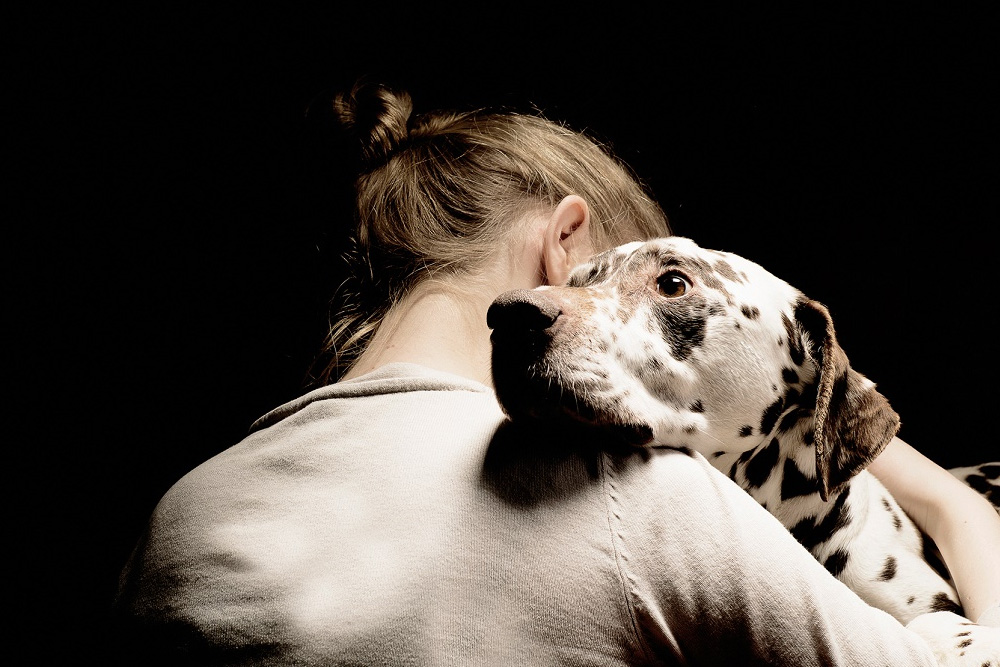How to Stop Your Pets Destructive Behavior Before It’s Too Late

Have you ever wondered why pets have destructive behaviors? Have you ever been frustrated or worried about the things your pet chews, scratches or destroys around your home? Would you like to know how to avoid or correct these unwanted behaviors?
If you answered yes to any of these questions, then this article is for you. Here you will learn the main causes and types of destructive behavior in pets, and how to deal with them effectively and positively. You will find that pets’ destructive behavior is not a sign of meanness or rebellion, but rather a way of expressing their needs and emotions. You will also learn how to provide your pet with a happier and healthier life, avoiding boredom, anxiety, fear and stress that can lead to destruction.
Related articles
1- Treat Your Pet Like Family: 10 Fun Activities to Do Together
2- Keep Your Pet Healthy and Happy with Regular Veterinary Check-ups
3- How to Keep Your Pets Mind Sharp with Unique Games and Foods!
4- From Fat to Fit: Home Exercises for Your Obese Pet
The destructive behavior of pets can be a serious problem for both owners and animals. It can cause material damage, risks to the health and safety of pets, and conflicts in the relationship between them. Therefore, it is important that you know how to prevent and solve this problem, using techniques based on the science of animal behavior.
See now the important information you need to learn about destructive pet behavior.
Destructive behavior in pets is any behavior that can cause harm to your pet or your home. This can include biting, digging, chewing, barking, or other unwanted behaviors. Destructive behavior in pets is common and can be caused by various factors, such as:
- Boredom: Pets need mental and physical stimulation to stay happy and healthy. If they don’t get enough exercise, playtime, or enrichment, they may resort to destroying things to relieve their boredom and frustration.
- Anxiety: Pets can suffer from anxiety due to separation, fear, or stress. Anxiety can make pets feel nervous, restless, or insecure, and they may express it by being destructive, especially when left alone or in unfamiliar situations.
- Teething: Puppies and kittens go through a teething phase when their baby teeth fall out and their adult teeth grow in. This can cause discomfort and pain in their gums, and they may chew on anything they can find to soothe themselves.
- Instinct: Pets have natural instincts that may drive them to be destructive. For example, dogs are descended from wolves that hunt and tear apart their prey. Cats are predators that use their claws to catch and kill their food. These instincts may make them want to chew, shred, or scratch things in your home.
How to stop destructive behavior in pets?
Destructive behavior in pets can be frustrating and costly, but it can also be dangerous for your pet’s health and safety. Therefore, it is important to address it as soon as possible and find ways to prevent it. Here are some tips to help you stop destructive behavior in pets:
- Provide enough exercise: Pets need regular physical activity to burn off excess energy and keep them fit. Make sure you walk your dog at least twice a day, and play with your cat using toys that stimulate their hunting instincts. You can also use interactive toys or puzzles that challenge your pet’s mind and keep them entertained.
- Provide appropriate chew toys: Pets need something to chew on to satisfy their oral needs and keep their teeth healthy. Provide them with safe and durable chew toys that are suitable for their size and age. You can also rotate the toys every few days to keep them interested and avoid boredom.
- Provide a safe and comfortable environment: Pets need a place where they feel secure and relaxed. Make sure you provide them with a cozy bed, fresh water, food, and a litter box (for cats). You can also use calming products such as pheromones, aromatherapy, or music to help them cope with anxiety or stress.
- Train your pet: Pets need to learn the rules and boundaries of your home. Train your pet using positive reinforcement techniques such as praise, treats, or toys. Avoid using punishment or scolding, as this can make your pet more anxious or fearful. Teach your pet basic commands such as “sit”, “stay”, “leave it”, or “drop it” to help them control their impulses and obey you.
- Consult a professional: If your pet’s destructive behavior is severe or persistent, you may need to consult a professional such as a veterinarian or a behaviorist. They can help you identify the root cause of the problem and provide you with a personalized treatment plan.
Destructive behavior in pets is not a sign of spite or revenge. It is usually a symptom of an underlying issue that needs to be addressed. By understanding why your pet acts this way and providing them with the proper care and guidance, you can help them overcome their destructive habits and enjoy a happier and healthier relationship with them.
- Boredom: Pets need mental and physical stimulation to stay happy and healthy. If they don’t get enough exercise, play or enrichment, they may resort to destroying things to alleviate their boredom and frustration¹².
- Anxiety: Pets can suffer from anxiety because of separation, fear or stress. Anxiety can make pets feel nervous, restless or insecure, and they can express it by being destructive, especially when left alone or in unfamiliar situations¹² .
- Teeth change: Puppies and kittens go through a teeth change phase when their milk teeth fall out and their permanent teeth grow. This can cause gum discomfort and pain, and they may chew on anything they can find to relieve themselves.
- Instinct: Pets have natural instincts that can lead them to be destructive. For example, dogs are descended from wolves that hunt and tear their prey. Cats are predators that use their claws to capture and kill their food. These instincts can make them want to chew, tear, or scratch things around your home¹².
How to stop destructive behavior in pets?
Destructive behavior in pets can be frustrating and costly, but it can also be dangerous to the health and safety of pets. Therefore, it is important to address it as soon as possible and find ways to prevent it. Here are some tips to help you stop destructive behavior in pets:
- Provide enough exercise: Pets need regular physical activity to expend excessive energy and keep them in shape. Make sure you walk your dog at least twice a day, and play with your cat using toys that stimulate its hunting instincts. You can also use interactive toys or puzzles that challenge your pet’s mind and keep him entertained¹².
- Provide appropriate chew toys: Pets need something to chew to satisfy their oral needs and keep their teeth healthy. Provide them with safe, durable toys that are appropriate for their size and age. You can also rotate toys every few days to keep them interested and avoid boredom¹².
- Provide a safe and comfortable environment: Pets need a place where they feel safe and relaxed. Be sure to provide them with a cozy bed, fresh water, food and a litter box (for cats). You can also use calming products like pheromones, aromatherapy or music to help them deal with anxiety or stress¹².
- Train your pet: Pets need to learn the rules and limits of your home. Train your pet using positive reinforcement techniques such as praise, treats or toys. Avoid using punishment or scolding, as this can make your pet more anxious or fearful. Teach your pet basic commands like “sit”, “stay”, “drop” or “let go” to help it control its impulses and obey you.
- Consult a professional: If your pet’s destructive behavior is severe or persistent, it may be necessary to consult a professional, such as a veterinarian or behaviorist. They can help you identify the root cause of the problem and provide you with a personalized treatment plan.
- Destructive behavior in pets is not a sign of spite or revenge. It is usually a symptom of an underlying problem that needs to be addressed. By understanding why your pet acts the way they do and providing them with the proper care and guidance, you can help them overcome their destructive habits and enjoy a happier, healthier relationship with them.
In this article, you learned the main causes and types of destructive behavior in pets, and how to effectively and positively deal with them. You saw that the destructive behavior of pets is not a sign of spite or revenge, but a way of expressing their needs and emotions. You also saw how to provide your pet with a happier and healthier life, avoiding boredom, anxiety, fear and stress that can lead to destruction.
We hope this article has been helpful and enlightening for you. Remember that your pet is a living being that needs love, care and guidance. By understanding and respecting your pet, you can build a more harmonious and lasting relationship with him.
If you liked this article, share it with your friends and family who also have pets. And if you have any questions or suggestions, leave a comment below. Thank you for your attention and until next time!
Sobre o Autor




0 Comentários